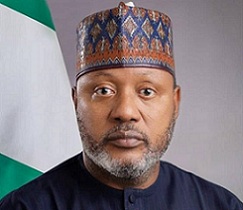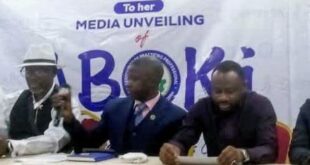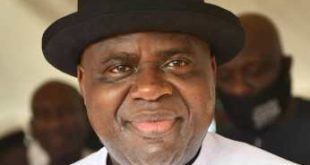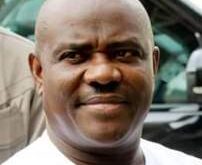By Godwin Chukwumaechi
The Federal Government has urged stakeholders in the Niger Delta region to support government’s efforts on infrastructure security to enhance the economic and social development of the country.
Making the call at a two-day Niger Delta Infrastructures Security Summit organised by the Nigeria Infrastructures and Business Assets Security Group in Port Harcourt on Tuesday, the minister for Environment, Mohammed Abdullahi, said that as a major oil producing nation, Nigeria has made huge investment in critical infrastructure in oil and gas industry ranging from exploration, to transport, pipelines among others.
He said that the theme of the summit ‘Infrastructure Security: Responsibility in Collective National Interest,’ was apt at this period when the Federal Government was trying to focus on resources, regularisation of power, oil and gas, transportation, telecommunications and other infrastructures for the collective national interest.
Represented by Alhaji Mohammed Ali, executive officer at the Federal Ministry for Environment, the minister said that the industry had seemingly been challenged by air and water pollution, limitation of land by contamination as well as climate vegetation by oil and gas, third party interference, loss of livelihood, diseases impacted on oil communities.
According to the minister, Nigeria has estimated that over 270 million barrels of national crude oil investment was lost to sabotage between 2015 and 2020, as well as an estimated revenue loss of $14.6 billion due to illegal oil operations.
Abdullahi said; “In 2021 193 million barrels of crude oil was allegedly lost in 11 months due to crude oil theft which translated to an estimated $3.5 billion of revenue, about 10 percent of country’s oil reserves, and also about 3 million liters spilled, over 370 cases within the first three years to illegal oil extraction and artisanal refining.”
He said that it was sacrosanct for critical oil and gas infrastructure operators or partners and host communities to adopt due care and best practices in other to guarantee a lasting solution to environmental devastation, collective economic losses, safety and security, loss of lives and social infrastructure.
He solicited the support of all stakeholders including oil and gas operators, host communities and civil society organisations in finding lasting solution to the dilapidation of critical infrastructures.
He also urged stakeholders in the security sector and host communities to protect and safeguard their environment to stop oil vandalisation and achieve the intended goals in economic growth.
The minister of Niger Delta Affairs, Obong Umana, who was represented by Dr Cynthia Eguridu, his technical adviser, said that the theme of the summit would not have been more appropriate especially if one thinks of the peace and development in the region, adding that this also ensures “that the very structure for sustainable economic growth and development in the region for the collective benefits be safeguarded, protected from the risk, abuse or misuse, sabotage and destruction”.
He said that everyone is responsible for the security of infrastructure in the collective national interest.
According to him the Niger Delta region constitute 21.4 percent of the Nigeria’s population based on 2006 census, so infrastructure security is a responsibility that all should embrace collectively for regional and national development.
Prof. Isa Pantami, minister for Communications and Digital Economy, said that that the summit would be a wake-up call to stakeholders in the oil and gas sector, power, communications, telecommunications and other sectors to guard, protect and preserve all critical infrastructure in the country.
Pantami who was represented by Mr Adeleke Adewolu, the executive commissioner, Stakeholders Management Nigerian Communications Commission, recalled that over 40,920 cases of fiber optic cable cuts and 1,307 cases of theft were recorded in recent times.
He urged key stakeholders to drive the message of the summit home to the host communities to achieve results, adding that security infrastructure is the collective responsibility of all Nigerians.
In his remark, Dr. Edmund Daukoru, chairman, Nigerian Liquefied Natural Gas Limited who is also the chairman, Advisory Board, called on key stakeholders to find a lasting solution to the issues of oil and gas vandalisation, power sector and telecommunications and transportation.
Daukoru, who is also the traditional ruler of Nembe Kingdom in Bayelsa State, commended ministries and private supporters for their efforts, adding that asset protection needs much attention as asset expansion and growth.
He mentioned some of the factors limiting the actualization of future potentials and improvement on infrastructure security as geopolitics exclusive, not inclusive.
He added; “Grassroots communities having lost a sense of belonging, see investors and the assets they seek to build as the source of their problems, not the solution thereto.
“Government, rather than private sector driven economy, low level of literacy and skills, poor sense of patriotism, degradation of physical infrastructure, its direct and derivative value, and negative attitude to it.
He said that oil and gas sector is of very high replacement cost, although the consequential loss of crude export is the one that dominates the headlines.
According to him, this is because the figures of production loss are easy to access, whereas the very high costs of repairs of production facilities hardly make it to the press.
 PH Mundial – Port Harcourt Online Newspaper News Across The Region
PH Mundial – Port Harcourt Online Newspaper News Across The Region





